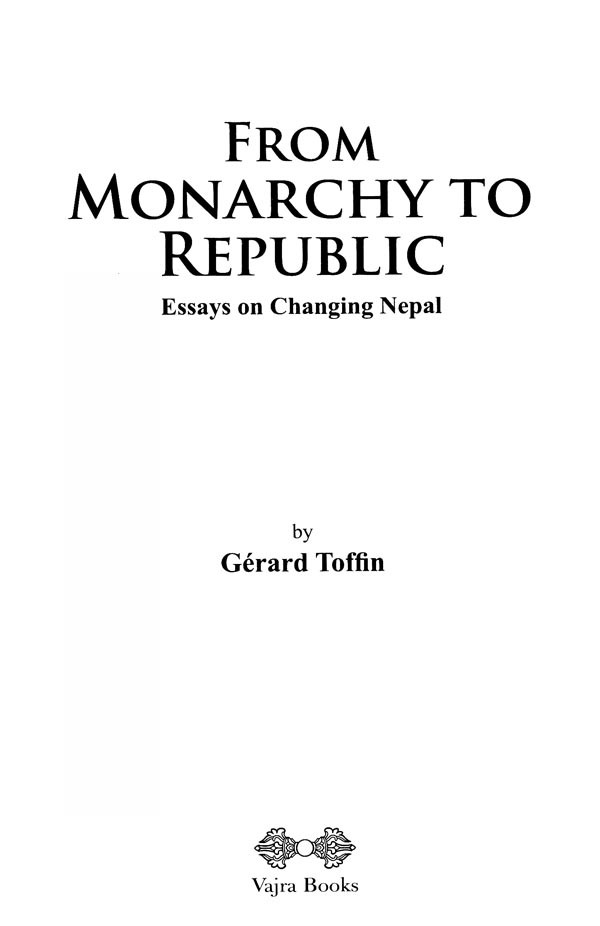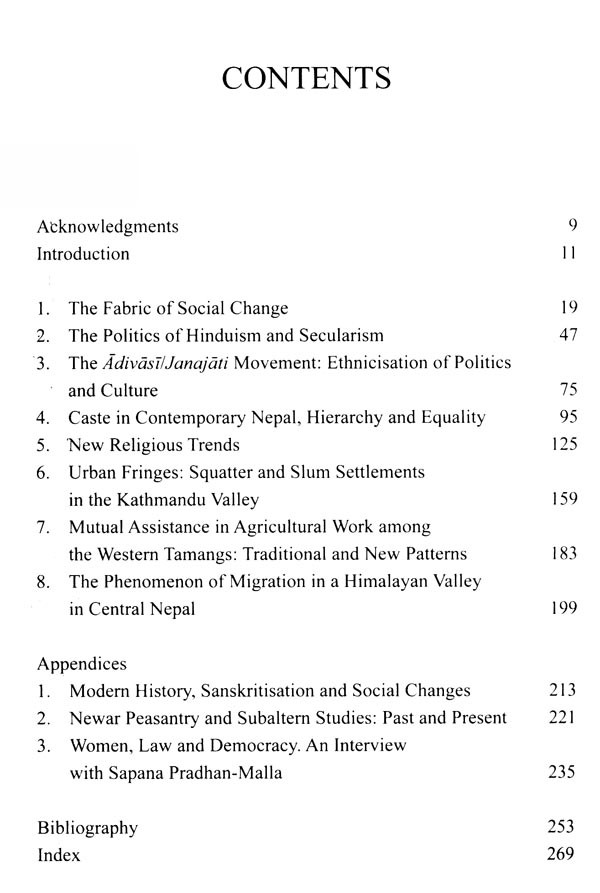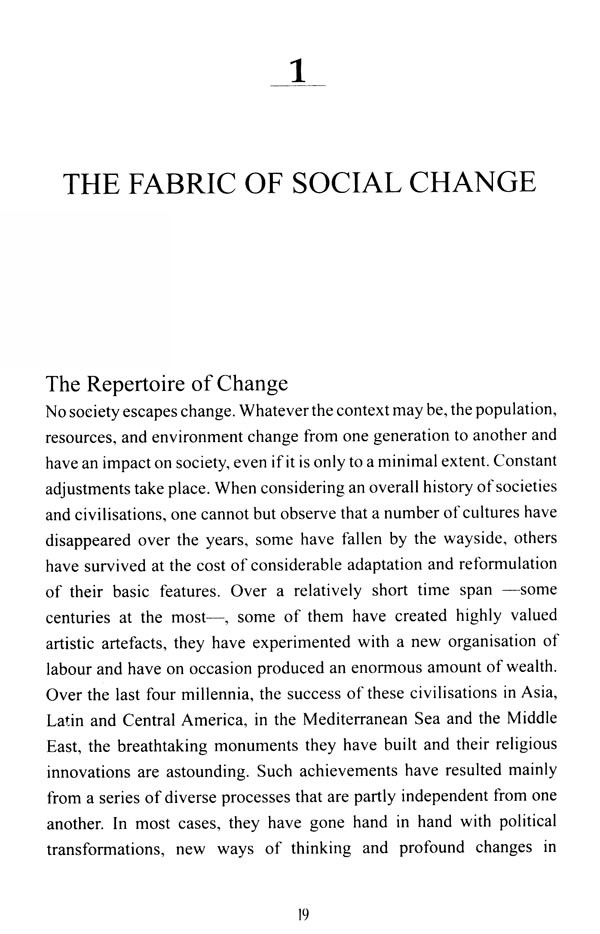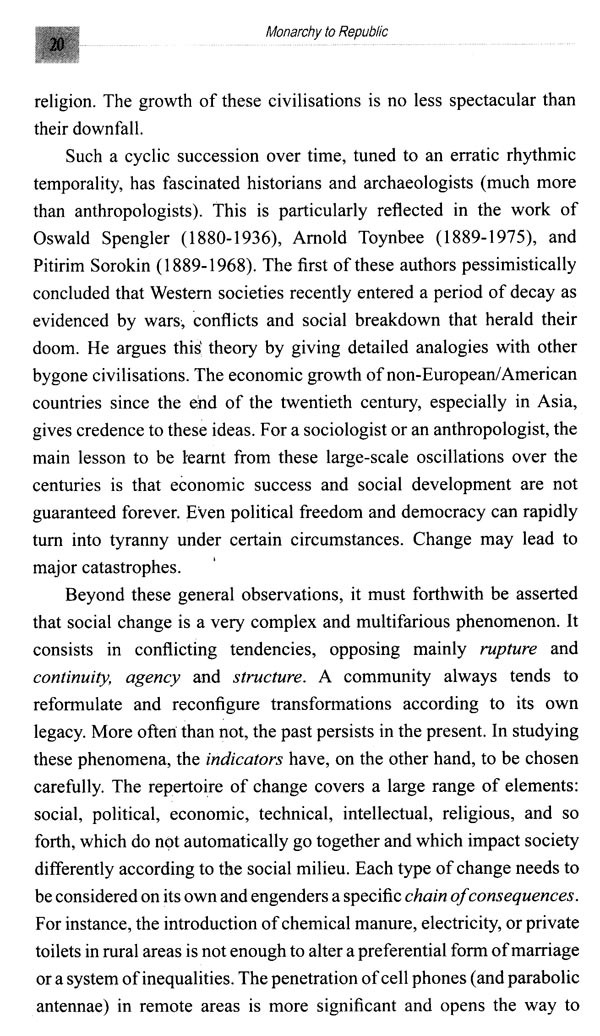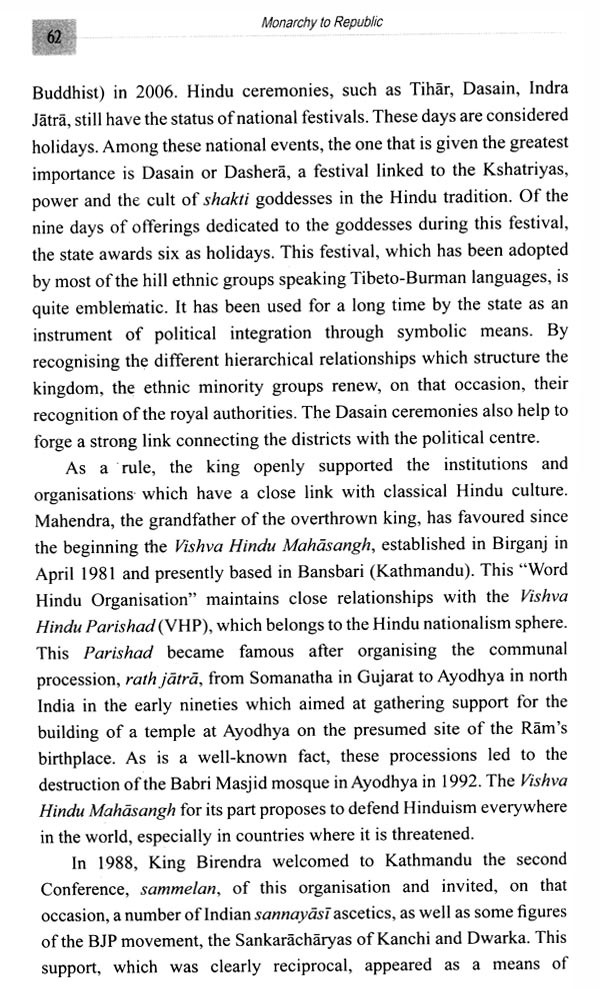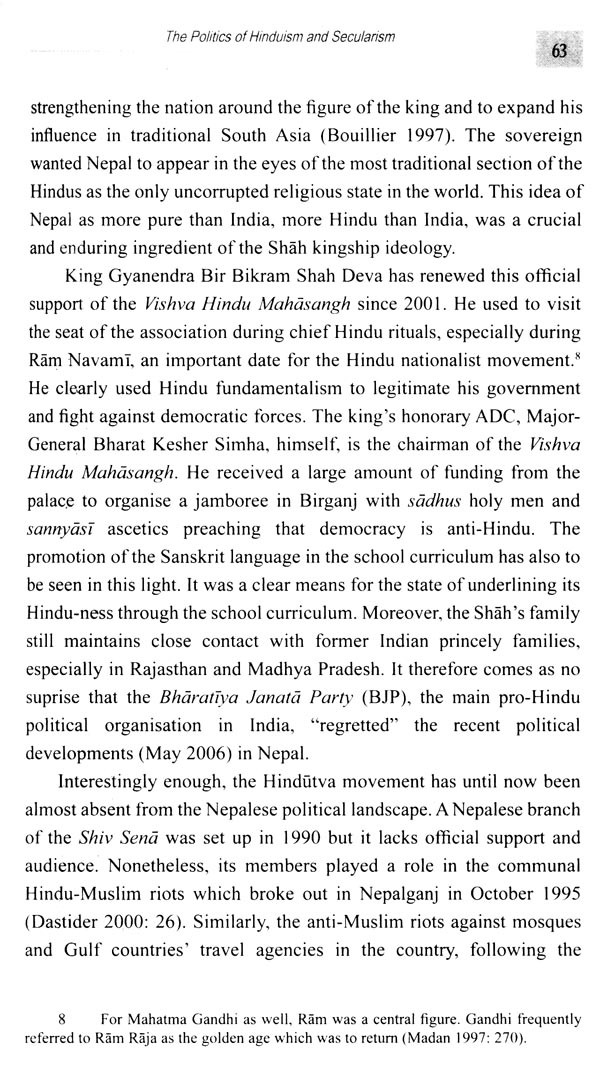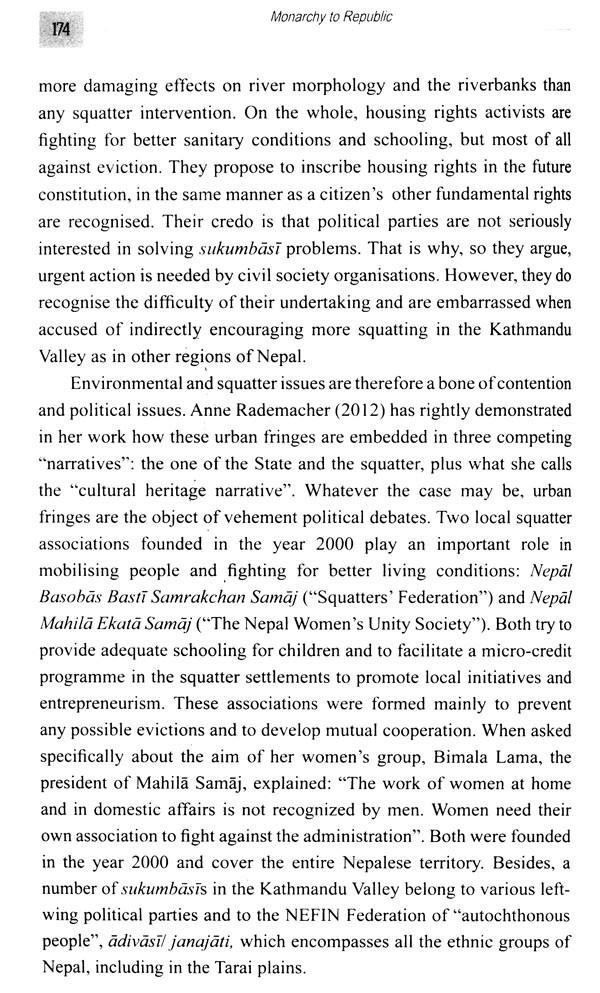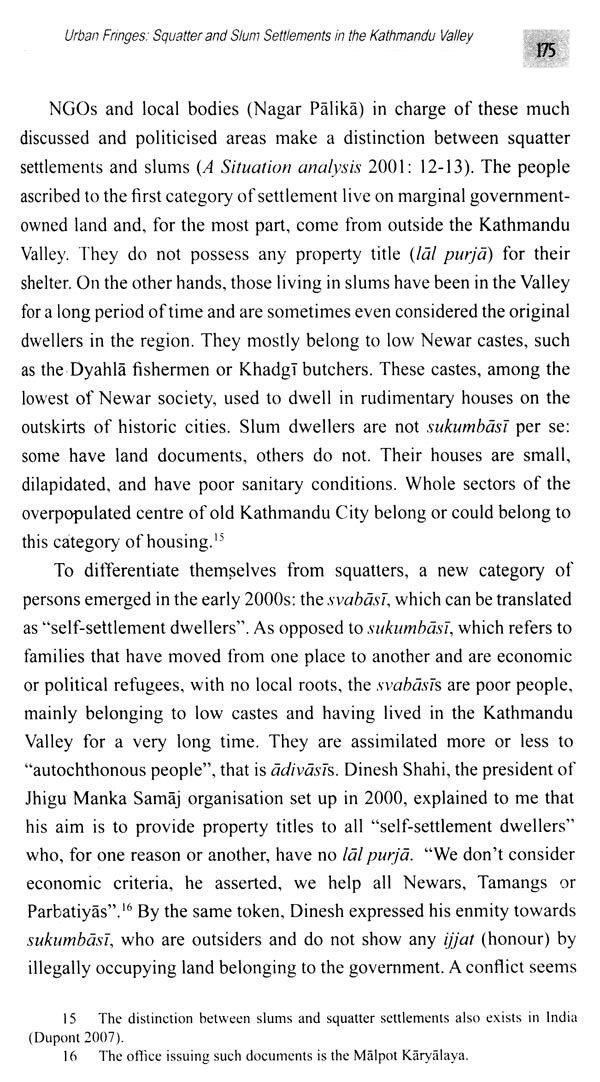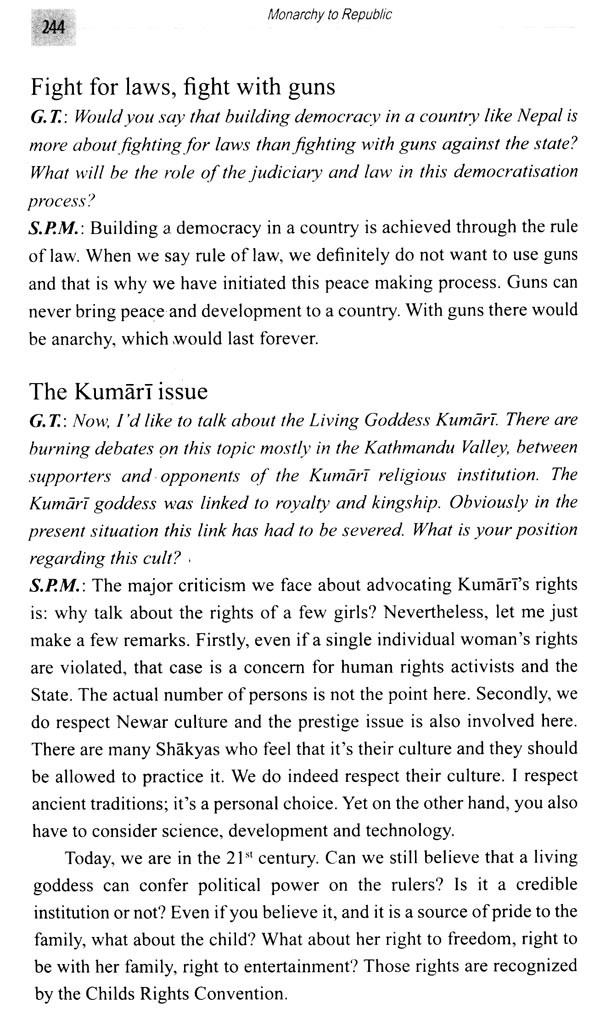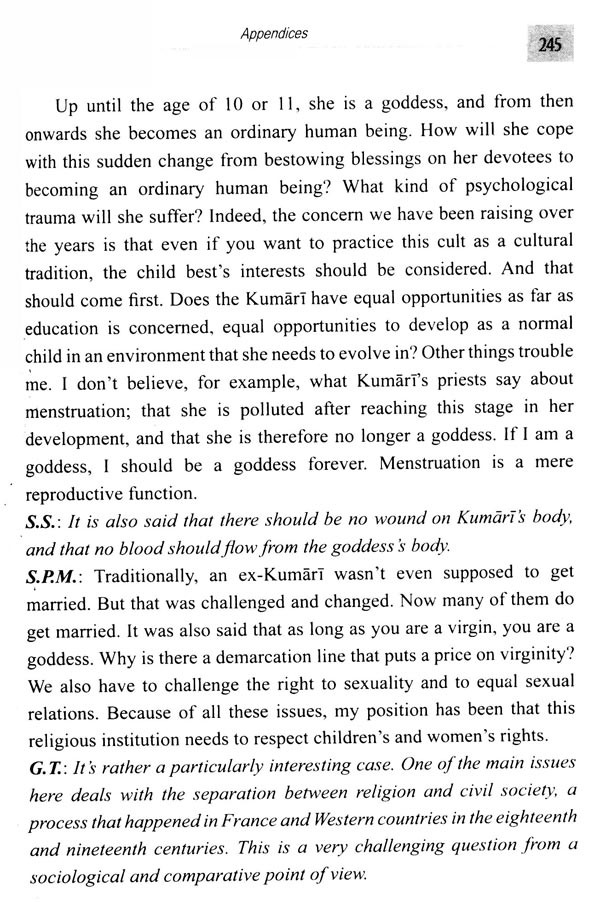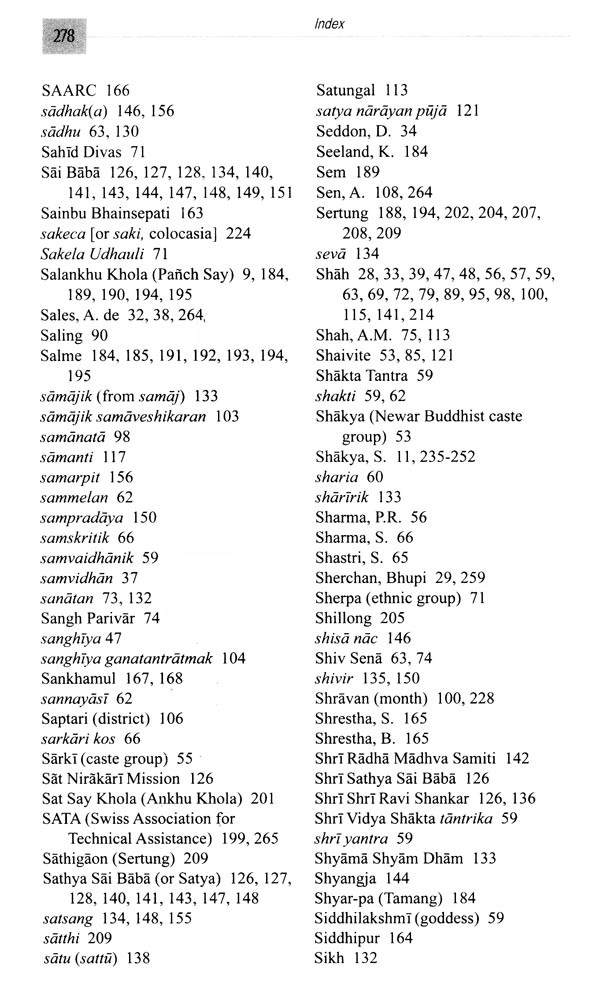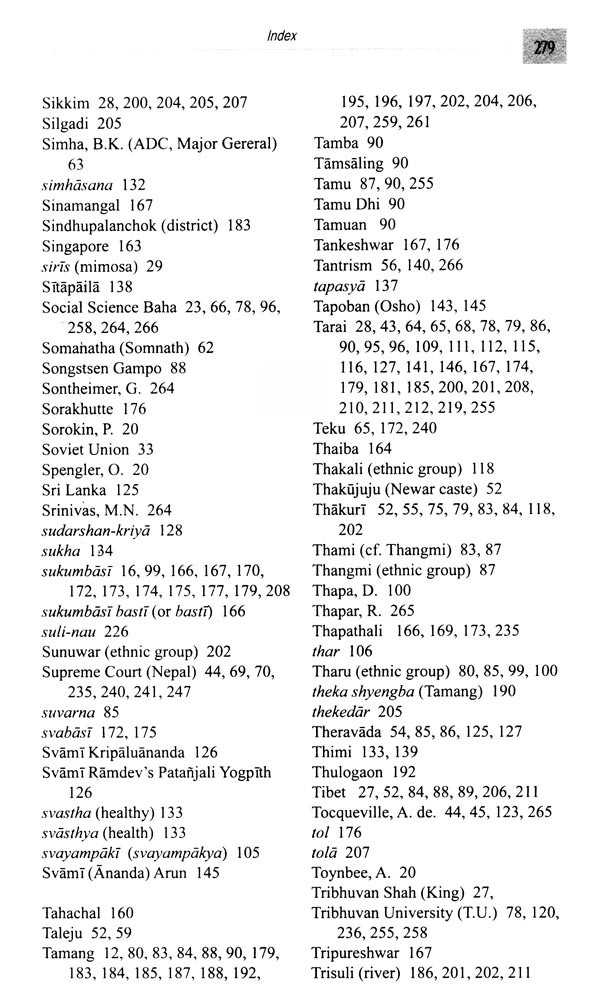About the Author GERARD TOFFIN, Director of Research at CNRS National Centre for Scientific is a member of the Centre for Himalayan Studies, France. He started his research on Nepal in 1970, after a post as Cultural Attaché at the French Embassy in Kathmandu and as a French teacher at Darbar School. An expert in Nepali culture and society, he has published a number of books on the Newars of the Kathmandu Valley and on religion in Nepal. He has also carried out research on the Tamangs of Ganesh Himal (Dhading District). His recent books include: Newar Society City, Village and Periphery (Himal Books, 2007, 2008); in collaboration with Joanna Pfaff-Czarnecka, The Politics of Belonging in the Himalayas. Local Attachments and Boundary Dynamics (Sage, 2011); and, in collaboration with Marine Carrin and Pralay Kanungo, The Politics of Ethnicity in India, Nepal and China (Primus 2013). In May 2013, he received the Nai Derukh International Award in Kathmandu for his contribution to the study of Nepali culture and society.
Introduction All South Asian countries have experienced sweeping changes over the last decades. A new state, Bangladesh, was even carved out in 1971. Yet transformations have perhaps been greater in Nepal than anywhere else. This former secluded conservative Hindu kingdom, almost untouched by colonisation, opened its boundaries to the outside world in 1951. A republic was established in 2008, which has been headed twice by Maoist leaders since its inception. The population has multiplied by more than three over the last six decades. In addition, Nepal is now facing modernisation and globalisation; new electronic communication technologies have been adopted. These unprecedented transformations have given birth to a new, young, country, rich in human resources. The social structure is slowly changing and new values are emerging. Unfortunately, Nepal, which is at present under the process of reorganising its state structures, is also facing a deep pervasive political, energy and economic crisis. A huge number of migrants flee their country to earn more money and to enjoy a supposedly easier life elsewhere. This exodus considerably weakens Nepal. By and large, today the future of the young Himalayan republic is very uncertain and hard to predict.
**Contents and Sample Pages**
